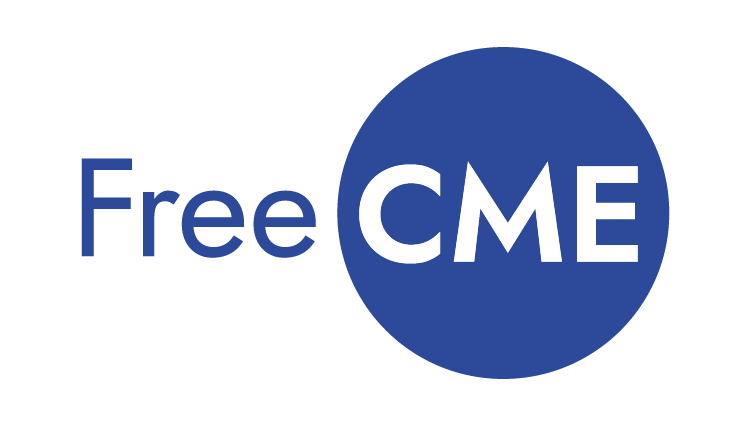
Transforming Care for Early Stage T1D with Targeted Clinical Strategies
Released On
August 25, 2025
Expires On
August 25, 2026
Media Type
Internet
Completion Time
60 minutes
Specialty
Endocrinology, Pediatrics, Primary Care
Topics
Diabetes
Providers/Grant Support

Credit Available
- Physicians — maximum of 1.0 AMA PRA Category 1 Credits™
- Nurses — 1.0 Nursing Contact Hours
- Dietetic Registration (CDR) Credit Designation - 1.0 CPEU.
All other healthcare professionals completing this course will be issued a statement of participation
Target Audience
This activity is designed to meet the educational needs of Pediatric Endocrinologists, as well as other clinicians and members of the healthcare team who treat patients with type 1 diabetes, including Adult Endocrinologists, Pediatricians, Internal Medicine Clinicians, Primary Care Providers, Endocrine Nurses, and Infusion Professionals
Program Overview
This virtual symposium will overview the benefits of screening for type 1 diabetes (T1D), as well as evidence-based screening and early detection methods to identify presymptomatic T1D in order to intervene early with disease-modifying therapies (DMTs) to delay disease progression. In addition, through expert faculty conversations, high impact animations, and patient cases, this activity will provide valuable insights to pediatric endocrinologists and other clinicians that see T1D patients on identifying appropriate patients who would benefit from treatment with DMTs, as well as considerations for administration of these therapies according to guidance and patient-specific factors.
Learning Objectives
Upon completion of this activity, participants should be better able to:
- Incorporate evidence-based strategies for presymptomatic T1D screening into routine clinical practice to improve early detection
- Interpret T1D screening results and effectively communicate next steps to support patient education and inform treatment decisions
- Identify appropriate patients who would benefit from treatment with disease-modifying therapies for delaying T1D progression based on clinical evidence
- Implement protocols to support safe and efficient administration of disease-modifying therapies for T1D according to guidance and patient-specific factors
Faculty

Ananta Addala, DO, MPH
Assistant Professor
Department of Pediatrics
Division of Endocrinology & Diabetes
Lucile Packard Children’s Hospital
Stanford University

Laura Jacobsen, MD
Assistant Professor
Associate Fellowship Program Director
Pediatric Endocrinology
University of Florida
Gainesville, FL
Joint Accreditation Statement

In support of improving patient care, Med Learning Group is jointly accredited by the Accreditation Council for Continuing Medical Education (ACCME), the Accreditation Council for Pharmacy Education (ACPE), and the American Nurses Credentialing Center (ANCC), to provide continuing education for the healthcare team.
Disclosures of Conflicts of Interest

Instructions for Participation and Credit
There are no fees for participating and receiving CME credit for this enduring activity. To receive CME credit participants must:
- Read the CME/CE information and faculty disclosures.
- Participate in the online activity.
- Submit the evaluation form.
Certificates will be immediately available to the participant.
Course Viewing Requirements
Supported Browsers:
Internet Explorer 8.0+ for Windows 2003, Vista, XP, Windows 7, Windows 8.1 and above
Google Chrome 28.0+ for Windows, Mac OS, or Linux
Mozilla Firefox 23.0+ for Windows, Mac OS, or Linux
Safari 6.0+ for Mac OSX 10.7 and above
Supported Phones & Tablets:
Android 4.0.3 and above
iPhone/iPad with iOS 6.1 or above
Disclosure of Unlabeled Use
Med Learning Group requires that faculty participating in any CE activity disclose to the audience when discussing any unlabeled or investigational use of any commercial product or device not yet approved for use in the United States. During the course of this lecture, the faculty may mention the use of medications for both FDA-approved and non-approved indications.
Disclaimer
Med Learning Group makes every effort to develop CE activities that are scientifically based. This activity is designed for educational purposes. Participants have a responsibility to utilize this information to enhance their professional development in an effort to improve patient outcomes. Conclusions drawn by the participants should be derived from careful consideration of all available scientific information. The participant should use his/her clinical judgment, knowledge, experience, and diagnostic decision-making expertise before applying any information, whether provided here or by others, for any professional use.
Contact Information
For CE questions, please contact Med Learning Group at: [email protected].
Contact this CE provider at Med Learning Group for privacy and confidentiality policy statement information at www.medlearninggroup.com/privacy-policy/
